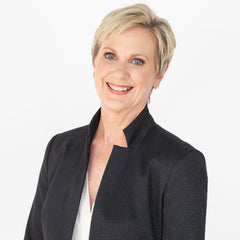None of us get through our adult lives without some questions about sexual functioning. And we go lots of places for answers, consulting family, friends, texts, the Internet, piecing together a quilt of inter-generational wisdom and ideas, sifting through marketing hype at the drugstore, trying to self-diagnose our situation and find the fastest-best-cheapest way to make it better. Or sometimes we simply live without answers to our questions, wondering and miserable.
This is a time-consuming and inexact way to learn that can lead to some uncomfortably misguided behaviors (Yogurt douche, anyone?).
Is there a better way? We think there is: You deserve a Sexually Literate Doctor.
Surveys tell us only 14 percent of men and women between ages of 40 and 80 have EVER discussed sexuality or sexual health with their doctors. I attended a women's sexual health conference this month, and out of 100 people in the audience, only one had EVER been asked by her doctor about sex.
That is, women who have worked for years with their gynecologist to bring their babies into the world don’t discuss sex with them. When discussing menopause symptoms and treatment, sex doesn’t come up. Women are more comfortable ignoring the sexual changes or treating sexual difficulties from drugstore or pantry shelves than through interaction with their health care providers.
And there’s good reason. For most of our lives, our physicians couldn’t help us. Most of them simply didn’t know how.
 Until very recently, not many doctors had the training to discuss female sexual function, and particularly post-menopausal sexual function. As recently as 10 years ago it was common for a physician to receive just an hour or two of training in female sexual function during their entire residency.
Until very recently, not many doctors had the training to discuss female sexual function, and particularly post-menopausal sexual function. As recently as 10 years ago it was common for a physician to receive just an hour or two of training in female sexual function during their entire residency.
That's why I started MiddlesexMD! Sexual literacy among physicians is getting better every day, but until thorough sexual health training is common in our medical schools, we still have to look around a bit to find a Sexually Literate Doctor who can answer our questions when we need help.
 Dr. Barb DePree, M.D., has been a gynecologist and women’s health provider for almost 30 years and a menopause care specialist for the past ten.
Dr. Barb DePree, M.D., has been a gynecologist and women’s health provider for almost 30 years and a menopause care specialist for the past ten.

2 comments
When you lose all desire for sex after menopause. and I do mean all, and try to talk to your Dr about that and all she says is that there are other ways to please your husband it’s no wonder. That certainly was not the response I was looking for. I tried on more than one visit to bring it up too and got the same answer. Gave up after that and decided that there mustn’t be anything I can do or take.
I got a similar response, actually worse. He asked me if I had any stress?! And then actually told me sex was “all in my head”. End of conversation.